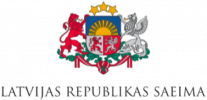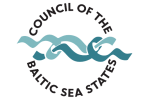Committees
Committees consider the issues which fall within their sphere and are of interest to the members of the national delegations and the member states of the Baltic Assembly, work out joint positions and consider and prepare recommendations to the Baltic Council of Ministers. The Committees have the following tasks:
- prepare the issues within their competence for consideration at sessions;
- initiate and prepare recommendations for the Resolution of the Session and drafts of the documents for consideration at sessions;
- oversee the implementation of the recommendations.
Each member of the national delegation may be a member of one standing committee and, additionally, a member of the Budget and Audit Committee. Each national delegation shall appoint its members to the committees of the Baltic Assembly in compliance with the principle of equal representation of the national delegations in the committees and, as far as possible, by taking their interests into account.
At the end of each Session, the national delegation of the next presiding state appoints chairperson of standing committees from among its members. The national delegations of the other two states appoint vice chairpersons of standing committees. Chairperson and vice chairpersons for the next calendar year must be approved at the Session of the Baltic Assembly. Chairperson and vice chairpersons perform their functions from 1 January. Chairpersons of the committees coordinate and organise the activities of the standing committee and draw up a plan of its work and convene meetings of the standing committee and draft their agendas.
Meetings of a standing committee shall be held at least once a year. Members of national delegations of the Baltic Assembly, representatives of the governments and experts may be invited to attend standing committee meetings; other persons may also be invited at the discretion of the standing committee chairmen.
For dealing with specific issues, the Session of the Baltic Assembly may set up ad hoc committees, defining their composition, scope and term of authority, and the procedure for reporting on their activities.
A standing committee of the Baltic Assembly has the power to act if its meeting is attended by at least one member of the national delegation from each member state of the Baltic Assembly, including the chairperson or vice chairperson of the standing committee. Decisions of a standing committee must be adopted by consensus of the standing committee members who attend the meeting. In the event of failure to reach a consensus, the chairperson of the standing committee may refer the issue to the Session for consideration.
There are the following standing committees of the Baltic Assembly:
- Economics, Energy and Innovation Committee
- Education, Science and Culture Committee
- Health, Welfare and Family Committee
- Natural Resources and Environment Committee
- Security and Defence Committee
- Budget and Audit Committee*
* As a result of structural reforms of the Baltic Assembly, the Budget and Audit Committee ceased to be a standing committee as of the 23rd BA Session on 17-19 December 2004. According to the amendments, the Session approves the composition of the Budget and Audit Committee and, when necessary, change its composition upon the recommendation of a national delegation.









